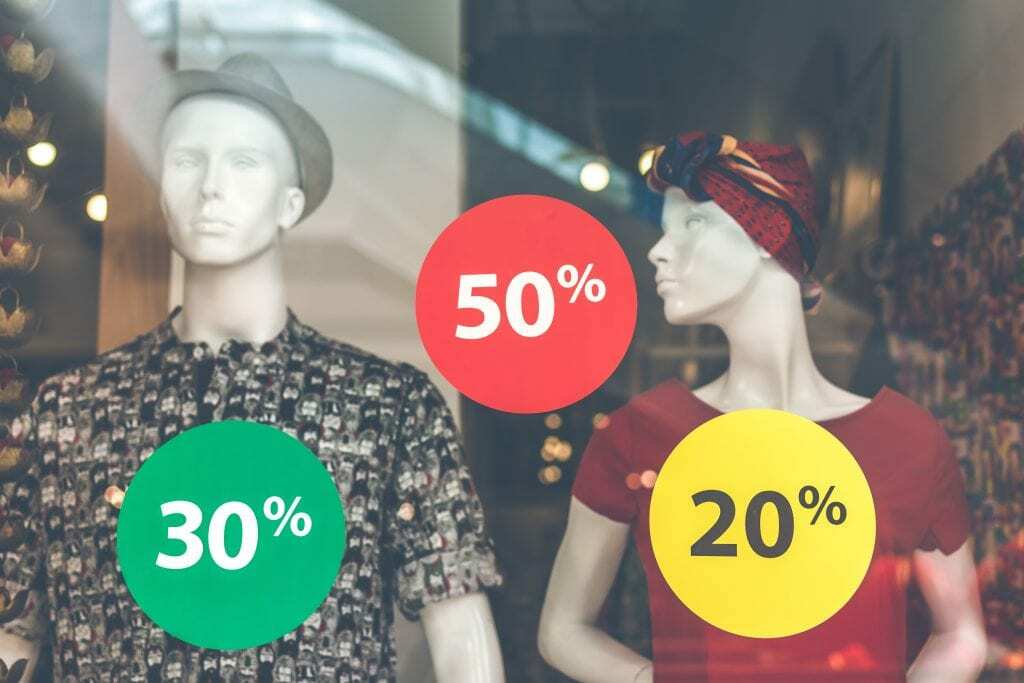Marketing is all about selling the right products to the right people. Every campaign you create whether it’s a poster in a shop window or a Facebook ad, it will be aimed at generating a specific reaction in those who view it.
But here’s the thing – consumers are complex people. Not only is each customer different, but so are their needs which may change on a day to day basis. These needs can be broken down into consumer behaviour types, which relate to a particular kind of sale.
If you are interested in knowing how consumer behaviour types affect a marketing strategy, here is the lowdown.
Consumer Behaviour Types

Not every purchase is created equal. For example, if you head into a supermarket you’re likely to purchase items you regularly buy. However, while you are in there you may also add other items to your trolley because of a special offer – aka impulse purchases. When you go down the electronics section, you are likely to spend more time considering larger purchases before handing over your cash. Each of these different types of thought processes essentially makes up consumer behaviour types, which are not limited to but include:
Routine
Customers who regularly buy the same products. When marketing to routine behaviour types, you are looking to project a consistent message. Routine customers know what they like, and are looking for that sense of familiarity. It doesn’t require heavy persuasion because the purchase is habitual.
Impulsive
A purchasing decision that isn’t planned or deliberated. When encouraging impulsive decisions, the marketing needs to cut right to the chase. For example, the campaign could focus on the price or USP (unique selling point).
Informed
Informed purchases require a thorough marketing strategy to get the customer off the ‘against’ team and onto the ‘for’ team instead. It is all about addressing customer pain points and showing them the worth in what you are offering them to quash any residual doubt. This is such an important part of B2B sales and so your marketing, digital or otherwise need to reflect and target these people!
Why Consumer Behaviour Types Matter

First things first. Are you looking to market your product at impulsive customers, or those who are habitual with their purchase? Consumer behaviour types matter because each requires a different approach. You need to weigh up all the reasons why someone is likely to buy the product or service. Doing so will allow you to overcome any potential sales barriers a specific consumer behaviour type is likely to observe.
For example, buy one get one free offers which are aimed at impulse behaviour types. Impulsive customers didn’t need two of that item, but your marketing has communicated that the deal is too good to pass up. Essentially, you need to know that the product or service you are marketing is likely to connect and ultimately lead to sales. By understanding what factors your audience is likely to resonate with, your marketing strategy is likely to be more successful.
What Influences Consumer Behaviour?

What influences consumer behaviour can be broken down into the following four factors: personal, economic, psychological, and social circumstances. In essence, who the consumer is, their age, background, interests and of course budget all influence their purchasing decisions. Every consumer will have individual factors but the marketing should look to attract a common denominator.
A thought process will take place based on a customer’s individual factors – i.e “Can I afford it?”, or “Do I need this?” It will help them decide whether they will make the purchase or not and involves how your audience is likely to think, feel or react to what you are selling. An example is a pre-Christmas rush where purchases are influenced by the ‘psychological’ factor. In this instance, stress may encourage more impulse behaviour types, and sentiment will encourage informed decision types.
Consumer Behaviour Types & Your Marketing Strategy

When creating a marketing strategy based on consumer behaviour types, you need to have a clear idea about how your audience is likely to react. If they aren’t receptive to how the information is being communicated, they aren’t going to convert. Taking impulse behaviour types as an example, the marketing needs to be succinct. The message could be as simple as sticking a ‘sale’ banner in a window in red letters to signify that sense of urgency.
In which case, impulsive behaviour types are going to be receptive to this tactic because they don’t require heavy persuasion. They are already sold on what they are offering without having to think it through like an ‘informed’ behaviour type would need to. It’s a clear and effective marketing strategy.
However, if you’re looking for an informed buyer, you’ll need a little more than just a ‘sale’ sign. The informed buyer will need to see as much information and possible. They’ll be the ones that look for; well-priced competitors, where you can offer a USP and how you’re best positioned to suit their needs.
To Sum Up
Consumer behaviour types exist within every purchase that is made. Sometimes the purchases are habitual, whereas others are informed by research and reviews. The key for marketers is to align their strategy with what is most likely to get the audience to convert. In some cases, this is a ‘buy it now!’ approach, and other times a more rounded strategy is required.
If you would like any advice with your marketing strategy, then Imaginaire is here to help. We are an independent design and marketing agency based in Dubai. Our core passion is to help businesses attract more leads through their website, so if that sounds like something your business would benefit from, be sure to get in touch.
Give us a call on 0115 971 8908 for help or advice.


